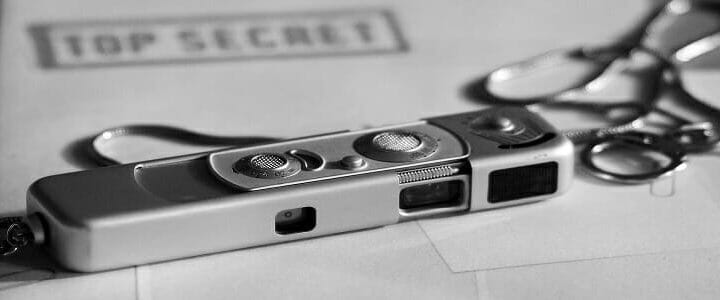Robert Ludlum, the original creator of Jason Bourne, was the unparalleled master of the spy thriller genre. But Len Deighton’s nine books chronicling the career of his fictional beleaguered British spy Bernard Sampson have always felt more realistic to me. Much of the books deal with the mundane, almost boring aspects of espionage, leading methodically to a suspenseful conclusion.
The FBI has given us their own spy drama this week with the announcement of the extradition from Belgium of Xu Yanjun, a deputy division director in China’s Ministry of State Security. The MSS is China’s main spy agency, “responsible for counter-intelligence, foreign intelligence and political security,” according to the Department of Justice.
Xu, who is the first Chinese intelligence officer arrested abroad, allegedly specialized in obtaining aviation technology from foreign sources.
Off the record, on the DL, and very Hush, Hush
Xu was arrested in April, but now that other parts of the operation are complete, law enforcement has made the information public. This development fills in some of the blanks surrounding the arrest two weeks ago of another Chinese national, Ji Chaoqun, who had enlisted in the Army Reserve under the controversial MAVNI program.
Daily Intel spoke to a current government official familiar with the operation, on the condition of anonymity, as the source is not authorized to speak to the press. The official provided some exclusive details on the operation leading to Xu’s arrest and extradition.
The mysterious “Employee 1”
The indictment and the accompanying press release state that the arrest was made in Belgium. It was almost in France, because Xu had committed many crimes there, too. That meeting “fell apart” according to my source, and Belgium stepped up “at the last minute,” agreeing to arrest and hold him until the international extradition—and the arrest of Ji Chaoqun—could be completed.
“Employee 1” listed in Xu’s criminal complaint and indictment paperwork is also “Employee 1” of Ji’s criminal complaint. He worked at a Cincinnati aerospace firm now confirmed to be GE Aviation (as I said at the time). The court documents list two other firms: “Company 2” is almost certainly Boeing; “Company 3” could be a number of “multinational corporations,” but based on the description, it is almost certainly Honeywell.
“Employee 1” was the subject of a search warrant, first for his email account, and then for his home, last fall. Sufficiently compromised, he had no choice but to cooperate with U.S. officials. According to my source, he told Xu that continuing to meet in China “was drawing too much attention,” so the two agreed to meet in Europe, where the Belgians arrested and detained Xu.
In the meantime, the investigation into Ji was still ongoing. He was compromised when he unknowingly met with an undercover FBI agent on April 28. The agent was posing as his new contact, “in light of Intelligence Officer A’s [Xu’s] arrest.” Many perhaps assumed at the time that “Intelligence Officer A” had been arrested in China. It’s now clear that the FBI knew “Intelligence Officer A” would not be contacting Ji because he was in Belgian custody.
Where does this leave U.S. Relations with china?
With this operation, the FBI has ended what could have been a serious technical breach. Xu was trying his best to get “Employee 1” to provide intricate details on GE Aviation’s proprietary formula for the composite metal they use to manufacture their jet engines’ fan blades. This would have saved China years of trial-and-error research.
More importantly, this is a powerful arrow in President Donald Trump’s quiver as he battles China over trade. A major U.S. complaint for years has been Chinese theft of American intellectual property, both patents and copyrights, through shotgun marriages resulting in dubious joint ventures.
With Xu’s arrest, the U.S. has solid proof that this theft extends into the world of espionage as well. This development won’t end the trade war, but it certainly makes it much harder for Chinese President Xi Jinping to deny the practice (as if more than 50 years of building knock-offs of American and Russian aircraft weren’t proof enough).
It’s almost as if Chinese engineers haven’t had an original idea at least since President Richard Nixon first visited in 1972. But hey, we got some pandas out of the deal, right?



